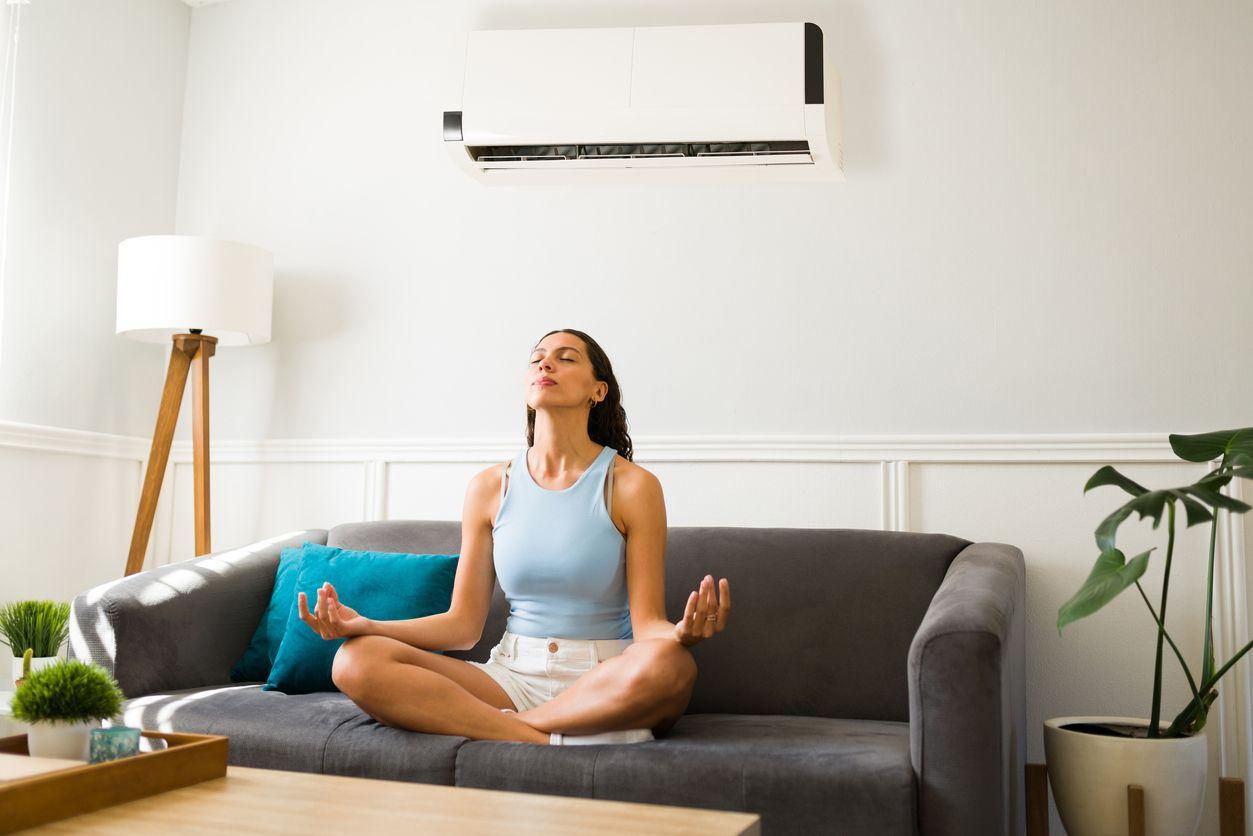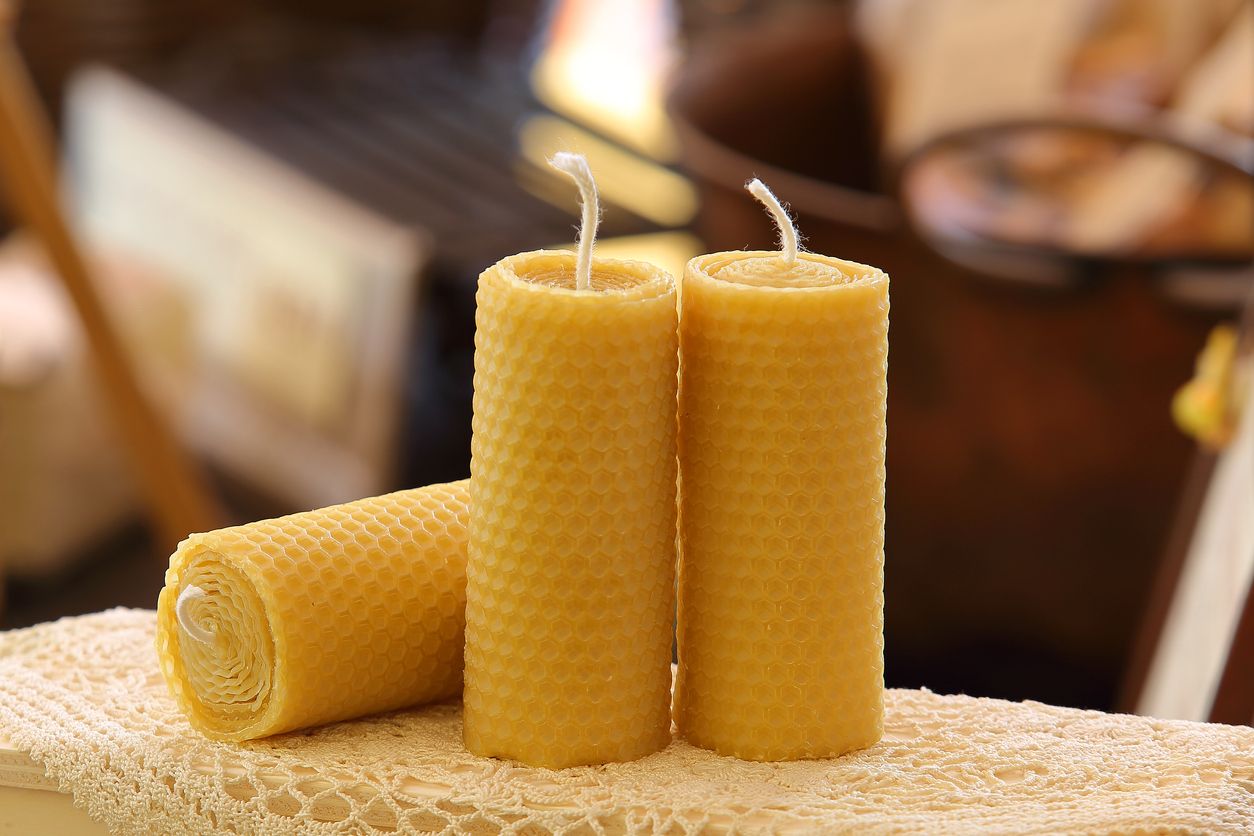How to Naturally Clean the Air in Your Home

Once an afterthought for many homeowners, COVID-19 and a rise in remote work and schooling pushed indoor air quality to the forefront. Taking steps to improve the indoor air quality in your home can reduce health concerns, including respiratory issues, allergies, headaches, and fatigue.
While whole-house and portable air cleaners are considered effective and can significantly improve air quality by reducing dust, pollen, pet dander, and other allergens, many eco-friendly homeowners prefer ways to naturally clean the air. Keep reading to learn how to naturally clean the air in your home.
10 Tips to Naturally Clean the Air in Your Home
If you’re searching for a quick and effective way to improve your home’s indoor air quality, consider trying a few of the 10 helpful tips below.
1. Buying Houseplants
Houseplants provide a number of health benefits. Houseplants purify the air by absorbing pollutants and releasing oxygen. The best houseplants for cleaning the indoor air include: Peace Lily, Aloe Vera, Weeping Fig, Boston Fern, Spider Plant, Snake Plant, and Dracaena.
“These plant friends will not only add aesthetic value to your home, but they will also help purify the air you breathe,” said Andrew Arthurs, CEO of Alpine Home Air, a distributor of heating, cooling, and indoor air quality equipment. “Formaldehyde, benzene, and xylene are no match for their expertise; with them, your house will be a safer and healthier place to live.”
2. Using Natural Cleaning Products
Harsh cleaning products are effective at cleaning and disinfecting surfaces, but they can release harmful contaminants into the air. Switching to natural cleaning products, often derived from plant-based ingredients, is a safer and more eco-friendly alternative. Natural laundry detergents, all-purpose cleaners, and dish soap effectively sanitize while reducing exposure to harsh chemicals.
3. Regular Cleaning
Cleaning is a chore few people enjoy, but regular cleaning can significantly improve the air quality in your home. Although the frequency of cleaning depends on factors such as foot traffic and pets, it’s generally recommended to dust and vacuum once a week. Sprinkling baking soda on carpets and upholstery and letting it sit before vacuuming can help absorb odors and remove some allergens.
4. Improving Ventilation
New homes are constructed airtight to prevent a loss of heating and cooling. While this is great for reducing energy costs, there’s no place for airborne pollutants and contaminants to go. Improving ventilation is a simple step to ensure a healthier air supply.
“Good ventilation is a cornerstone of achieving high air quality within a building,” Arthurs said. “You can maintain a freshly clean home environment by using proper ventilation measures. To accomplish this, keep your doors and windows open on a regular basis, especially when the weather is nice, to let in some fresh air from outside. This easy method helps lessen the severity of indoor air pollution.”
Also, consider using exhaust fans when cooking and showering.

5. Using Beeswax Candles
Beeswax candles are made from natural beeswax, a substance produced by honeybees. They improve indoor air quality by emitting negative ions when burned, which can help neutralize and remove positively charged particles like dust, allergens, and pollutants from the air, leading to cleaner and fresher indoor air.
6. Buying Activated Charcoal
Activated charcoal, also referred to as activated carbon, can remove some odors, pollutants, and volatile organic compounds (VOCs) from the air without releasing any odors. Activated carbon is available at local big-box stores or on Amazon.
7. Installing Salt Lamps
Himalayan salt lamps are popular. Not only are they a soothing presence in homes and act as a night light, but they are believed to pull toxins from the air to improve indoor air quality in homes. Salt lamps typically cost about $15-30 on Amazon.
8. Limiting Chemical Use
Avoid using air fresheners, aerosol sprays, and other chemical-based products, as they can release harmful VOCs into the air, which not only compromise indoor air quality but may also contribute to health issues such as headaches and respiratory irritation.
9. Changing Air Filters Regularly
Your HVAC system’s air filter should be replaced every 2-3 months on average, or according to the manufacturer’s guidelines. A clogged and dirty air filter can cause reduced airflow, higher energy consumption, and poor filtration, leading to negative health consequences.
“Not only does that cause trouble for your indoor air quality, it also wears down your AC system, which can lead to costly repairs down the road,” said Richard Dixon, founder and business operation head of Team Emergency Plumber, a nationwide home services company. “So, be sure to change your AC filters regularly, or get an air conditioning service plan which normally includes a filter change – especially if you are allergy-prone or live in a metropolitan area with high levels of pollution.”
10. Avoiding Smoking Indoors
If you or a family smokes, do so outdoors. Smoking indoors can significantly degrade indoor air quality.
Why Does Indoor Air Quality Matter?
We hope you consider implementing some of these tips for how to naturally clean the air in your home. Indoor air quality matters significantly because the air we breathe inside our homes can be 2 to 5 times more polluted than the air outdoors, according to the U.S. Environmental Protection Agency. This is especially concerning considering the average American spends about 90% of their time indoors.
Poor indoor air quality stems from various factors, including the accumulation of indoor pollutants such as dust, pet dander, tobacco smoke, and volatile organic compounds (VOCs) from household products. Poor indoor air quality has direct implications for our health, contributing to a range of issues such as aggravated allergies, respiratory problems like asthma and bronchitis, frequent headaches, and chronic fatigue.
Subpar indoor air quality poses a more substantial threat to certain vulnerable groups, including children, the elderly, and individuals with preexisting respiratory conditions including asthma and COPD.